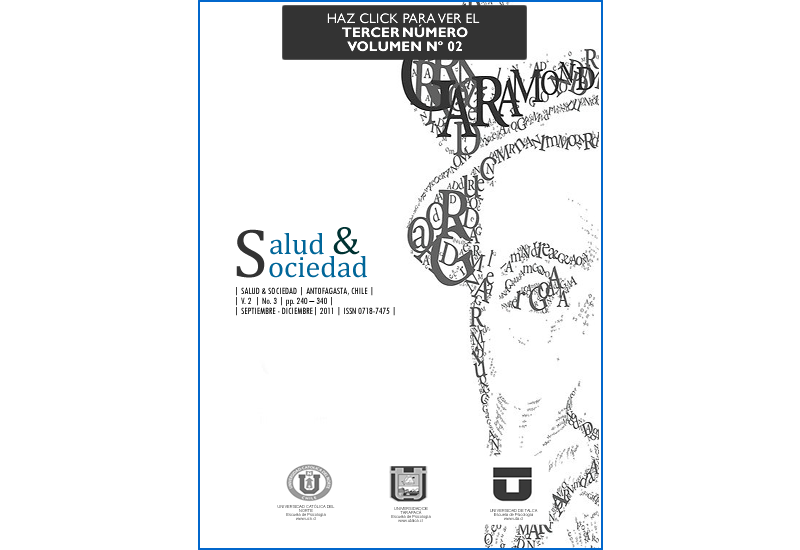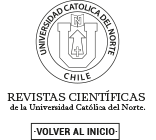Escala de factores estructurales de la clase: una medida para evaluar características de la clase relacionadas con las metas académicas de los estudiantes
DOI:
https://doi.org/10.22199/S07187475.2011.0003.00005Keywords:
Metas de aprendizaje, factores estructurales de la clase, Learning goals, structural factors of classroom,Abstract
El presente estudio presenta los resultados psicométricos de la escala para evaluar los factores estructurales de la clase propuestos por Ames (1992) relacionados con la adquisición por parte de los estudiantes de Metas de Dominio. La muestra estuvo compuesta por 275 estudiantes universitarios de 1º a 4º años de carreras de Ingeniería y Periodismo. El instrumento obtuvo una alta consistencia interna y el análisis factorial mostró una estructura coherente con la propuesta teórica. Finalmente la existencia de correlaciones significativas con la orientación de metas de Dominio se transforma en importantes evidencias de validez convergente
This study presents the results of psychometric scale to assess the structural factors of lassroom proposed by Ames (1992) related to the acquisition by students of mastery goals. The sample of 275 college students from 1st to 4th year of Engineering and Journalism. The instrument had a high internal consistency and factor analysis showed a structure consistent with the theoretical proposal. Finally, the existence of significant correlations with mastery goals orientation becomes strong evidence of convergent validity
References
York: Academic Press.
Ames, C. (1992a). Classrooms: Goals, Structure, and Student Motivation. Journal of Educational Psychology, 84(3), 261- 271.
Ames, C. (1992b). Achievement goals and classroom motivational climate. In J. Meece & D. Schunk (Eds.) Students’ perceptions in the classroom (pp.327-348). Hillsdale, NJ: Erlbaum.
Ames, C. & Archer, J. (1988). Achievement Goals in the Classroom: Student` Learning Strategies and Motivation Processes. Journal of Educational Psychology, 80(3). 260-267.
Dweck, C.S. 81986). Motivational process affecting learning. American Psychologist, 41, 1040-1048.
Dweck, C, Y Leggett, E. (1986). A Social Cognitive approach to motivation and personality. Psychological Review, 95, 256-273.
Elliot, E. & Dweck, C. (1988). An Approach to the motivation and Achievement. Journal of Personality and Social Psychology, 54, 5-12
Harackievicz, J. M., Barron, K., Tauer, J., Carter, S. & Elliot, A. (2000). Short-term and Longterm consequences of Achievement Goals: Predicting Interest and Performance over time. Journal of Educational Psychology, 92, 316-330.
González-Cabanach, R. Valle, A. Nuñez, C. & Gonzalez-PIEDA, J.(1996). Una Aproximación Teórica al Concepto de Metas Académicas. Psicothema, 8 (1), 45- 61.
Gonzalez, C. Torregrosa, G. & NAVAS, L. (2002). Un Análisis de las Metas en Situación de Aprendizaje para el Alumnado de Primaria y Secundaria Obligatoria. Revista Española de Orientación y Psicpedagogía, 13(1), 69-87.
Grant, H. & Dweck, C. (2003). Clarifying Achievement Goal and Their Impact. Journal of Personal and Social Psychology, 85, 541-517.
Hayamizu, T. & Weiner, B. (1991). A test Dweck´s Model of Achievement Goals as Related to Perceptions of Ability. Journal of
Experimental Education, 59, 226-234.
Horn, J. L. (1965). A rationale and test for the number of factors in factor analysis. Psychometrika, 30, 179-185.
Maher, M.L. & Nicholls, J.G. (1980). Culture and achievement motivation: A second look. In N. Warren (Ed.), Studies in cross cultural
psychology. San Diego, CA: Academic Press.
Martinez, M. Hernandez, M. V. & M. Hernandez, M. J. (2006). Psicometría. Ed. Alianza. Madrid.
Meece, Anderman & Anderman (2006). Classroom Goal Structure, Student Motivation and Academic Achievement. Annual Review of Psychology, 57. 478- 503.
Miller, R., Greene, B., Montalvo, G., Ravindran, B., & Nichols, J. (1996). Engagement in academic work: the role of learning goals,
future consequences, pleasing others, and perceived ability. Contemporary Educational Psychology, 21, 388-422.
Navas, L. González, C. & Torregrosa, G. (2002). Metas de Aprendizaje: Un Análisis Transversal de las Estructuras Factoriales que Presentan. Revista de Psicología General y Aplicada., 55(2), 553-564.
Navas, L. & Sampascual, G. (2008). Un Análisis Exploratorio y Predictivo Sobre la Orientación de Metas y Sobre el Contenido de las Metas de los Estudiantes. Horizontes educacionales, 13(1), 23-34.
Nicholls, J. G. (1984). Achievement motivation: Conceptions of ability, subjective experience, task choice, and performance. Psychological Review, 91(3), 328-346.
Pintrich, P.R. (2000). Multiples Goal, Multiples Pathway: The Role of Goal Orientation in Learning and Achievement. Journal of Educational Psychology, 92, 544-555.
Valle, A., Gonzalez-Cabanach,R. Rodriguez, S. Nuñez, J. C. & Gonzalez-Pieda, J. A. (2006). Metas Académicas, estrategias cognitivas y estrategias de regulación del Estudio. Psicothema, 18,(2), 165-170.
Weiner, B. (1986). An Atributional theory of motivation and emotion. Springer-Verlag. New York.
Wolters, C. (2004). Advancing Achievement Goal Theory: Using Goal Structures and Goal Orientations to Predict Students`Motivation, Cognition and Achievement. Journal of Educacional Psychology, 96,
236-250.
Wentzel, K. R. (2000). Social-Motivational Processes and Interpersonal Relationship Students` Academic Success. Journal of Educational Psychology 91, 76-97.
Published
How to Cite
Issue
Section
Los autores continúan como propietarios de sus trabajos, y pueden volver a publicar sus artículos en otro medio sin tener que solicitar autorización, siempre y cuando indiquen que el trabajo fue publicado originariamente en Revista Salud & Sociedad (ISSNe:0718-7475).



_(1).png)





